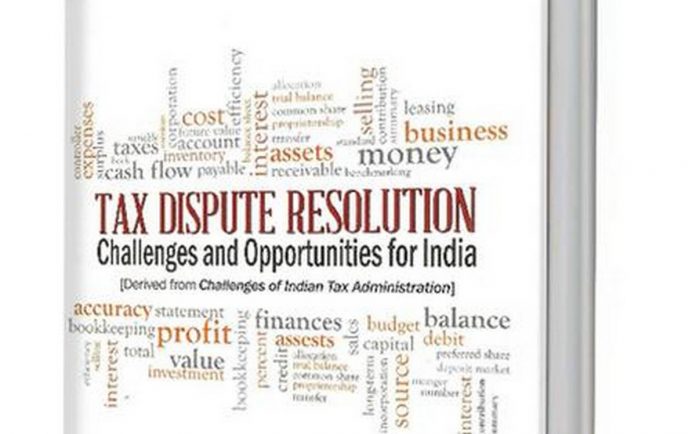This article has been written by Ashok Om Prakash Pandey, pursuing a Certificate Course in Arbitration: Strategy, Procedure and Drafting from LawSikho.
“In breach of the guarantee of fair and equitable treatment”
Table of Contents
Introduction
The above phrase was common in both the Vodafone and the Cairn energy arbitral awards which held the Indian tax authorities responsible for their retrospective taxation policies which breached the India-Netherlands BIT and the India-UK bilateral treaty respectively. While both these cases are still in court and also being heavily deliberated upon in the dispute resolution as well as taxation professionals’ circles, it brings to light India’s adversarial and pro-litigation approach towards resolving tax disputes.
India has maintained that since taxation is a subject of sovereignty and national interests, it cannot be subjected to the BIT, in the Vodafone case. Furthermore, in the case of K.K Modi v. K.N Modi, the Supreme Court has made it abundantly clear that taxation disputes cannot be subjected to arbitration unless an amendment to that effect is made in the tax laws. But is it likely to happen? Are India’s efforts enough to make the tax regime ADR friendly? Ex-CJI S.A. Bobde had made a case for the speedy resolution of tax litigations in early 2020 for effective resource mobilisation during the pandemic. However, he also cautioned against arbitrary taxation and imposition of unreasonable penalties by the government, which was just as big a social evil as tax evasion by the defaulters. Through this article, the author shall analyse the prevailing tax dispute resolution machinery which is heavily litigation centric and slow. Further, the prevailing ADR mechanisms introduced in the Finance Act, 2021 shall be discussed and critically analysed. This shall be followed by the concluding remarks and suggestions.
Prevailing dispute resolution machinery and its shortcomings
The four-tier litigation framework
For both direct and indirect taxes, the laws provide for a four-tier litigation framework. The Assessing Officer (for direct taxes) or the Assistant/Deputy/Joint Additional Commissioner (for indirect taxes) is the first level of adjudication, followed by the Commissioner of Income Tax (Appeals) (for direct taxes) or the Commissioner/Commissioner (Appeals) (for indirect taxes). The appellate tribunals after these are the Income Tax Appellate Tribunal (ITAT) for direct taxes and the Central, Excise and Service Tax Appellate Tribunal (CESTAT) for indirect taxes. The decisions of these tribunals are appealable in the high court, followed by the Supreme Court, for both direct and indirect tax-related disputes. Even though tribunals and administrative authorities take up judicial functions to ease the burden of the judiciary, this setup for the taxation regime in the country has not been working quite well. According to the Economic Survey of 2017-18, there are approximately 1, 37,176 pending direct tax cases under consideration at all the levels; including ITAT, High Courts and Supreme Court. Rs. 7.58 lakh crores have been locked up in these litigations which is equivalent to nearly 4.7% of India’s GDP.
With respect to direct taxes, the prevailing system sees greater delays because of Section 253 of the IT Act which authorises the Assessment Officer (AO) to challenge the order passed by the CIT (A) before the ITAT if the same is passed in favour of the assessee. Thereon, the parties have the option of appealing further before the High Court and subsequently the Supreme Court. It is said that the appeal against the orders in favour of the assessee has almost become a norm with 85% of such orders being appealed against before the ITAT. What makes it worse, is that the success rate of the department against these appeals is only 30% and reducing! In fact, in the case of CIT v. Larsen and Toubro Limited, the Bombay High Court highlighted the tendency of the AOs to file appeals against the CIT(A)’s orders without taking the merits into consideration and asked them to refrain from doing so because of the unnecessary costs incurred on the exchequer for paying the counsel fees.
The onset of the COVID-19 pandemic
Prior to the onset of the COVID-19 pandemic, the government of India had set up an indirect tax litigation settlement scheme called Sabka Vishwas (Legacy Dispute Resolution) under the Finance Act, 2019, for freeing small taxpayers from their litigations with respect to the indirect tax from the pre-GST era. This was however challenged, in late 2020 before the Madhya Pradesh High Court over the issue of “inclusion of disputed interest from the old tax regime” under the definition of “arrears” in the present regime. Taking inspiration from this scheme, the Central Government passed an Act for settlement of direct tax-related litigations called the Direct Tax Vivad se Vishwas Act, 2020. While this legislation aimed to resolve nearly 5 lakh direct tax-related disputes pending in various appellate forums, it has succeeded so far in resolving a quarter of them, amounting to the recovery of nearly 97,000 crores. Now, while these schemes have helped in reducing the pending litigation to some extent, it does not provide an amicable framework for the tax applicants. It only helps those who already have litigation pending before some fora.
With a view to reduce tax litigations and make the tax administration of India simpler, the Finance Act, 2021 made some remarkable changes. Unfortunately, the changes introduced in the indirect tax regime focused more on making the GST machinery simpler and not on providing a pro-ADR approach to resolving indirect tax-related disputes. However, with regard to direct taxes, the Finance Act proposed the establishment of a Dispute Resolution Committee (DRC). In order to provide early tax certainties, prevention of new disputes and, in an effort, to settle all issues at the initial stage, this committee has been formed with the following salient features:
- The route of resolution of disputes through the DRC shall entirely be at the discretion of the assessee.
- Only those disputes where the returned income is INR 5 million (about USD 69045) or less and the aggregate amount of variation proposed in a specified order is INR 1 million (about USD 13809) or less shall be eligible to be considered by the DRC.
- The DRC shall have the powers to reduce or waive any penalty or grant immunity from prosecution for any offence under the ITA.
This comes with the discontinuation of the Income Tax Settlement Commission (ITSC). Therefore, no new applications can now be filed for settlement of income tax disputes. An interim board, however, has been constituted to settle the ongoing applications for settlement. This is a welcome move since more than resolving disputes amicably, ITSC had become an easy way out for defaulters to get away from paying interests and penalties which would have to be paid after assessment. The establishment of the DRC and its assessee friendly approach should pave the way in changing the approach of tax defaulters in future.
Furthermore, the initiative of introducing a faceless ITAT, after introducing faceless assessments and appeals, would also, according to experts, go a long way in expediting the tax dispute resolution process. The primary reason behind the delayed resolution of disputes within the present system is the inadequate framework available to taxpayers to determine their liabilities beforehand. The closest our country has come to introduce a system in this regard was the establishment of the Authority of Advance Rulings (AARs). It helped taxpayers to get the knowledge in advance about the tax liabilities that their proposed transactions would incur. However, the position of the Chairman and Vice-Chairman of the AAR remained largely vacant because the Chairman of the Authority could be retired judges of the Supreme Court, retired Chief Justice of a High Court or a retired judge of a High Court (who served in that capacity for at least 7 years). Whereas the Vice-Chairman could be a retired judge of a high court. And it was not possible to find suitable persons to hold these positions. However, the central government has turned AAR into Board of Advance Ruling (BAR) under the Finance Act, 2021, under which the Board would constitute two officers, not below the rank of Chief Commissioner. It also says that the decision of the Board shall not be binding on the applicant or the department and an appeal against the order could be filed before the High Court.
Suggestions and conclusion
While the introduction of DRCs and the conversion of AARs into BARs by the Finance Act of 2021 is appreciated, effective measures should be introduced to provide advance rulings to small and medium taxpayers as well. Considering that India is home to a large number of startups, the presence of advance ruling authorities for such taxpayers, preferably with a lower-ranking official as chairperson, would really give impetus to reducing the number of new direct tax-related disputes.
GST, though introduced as a measure to replace the old complex infrastructure of indirect taxes, is yet being studied and understood by the common man. Therefore, the introduction of reforms to make it simpler are appreciated. However, at the same time, the government should also consider setting up alternate dispute resolution agencies for GST related issues as well. While cases from the pre-GST era are still being adjudicated under the Sabka Vishwas (Legacy Dispute Resolution) scheme, a pre-planning of ADR setups for GST related issues would reduce the inception of new disputes before the existing fora. In fact, the government could also explore the possibility of having time-bound mediation between the taxpayers and the first authority for adjudication of disputes (AO or Commissioner) for arriving at amicable settlements.
Although India is the second most populated country in the world, only 1.46 out of the 130 crore pay taxes. Therefore, it is high time that India adopts a more amicable approach in its tax administration so that the number of taxpayers increases, instead of the existing ones choosing to resort to tax evasion. Until then, the journey from adversary to amiability will remain unfinished.
Students of LawSikho courses regularly produce writing assignments and work on practical exercises as a part of their coursework and develop themselves in real-life practical skills.
LawSikho has created a telegram group for exchanging legal knowledge, referrals, and various opportunities. You can click on this link and join:
 Serato DJ Crack 2025Serato DJ PRO Crack
Serato DJ Crack 2025Serato DJ PRO Crack










 Allow notifications
Allow notifications


